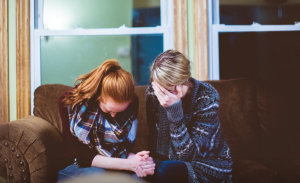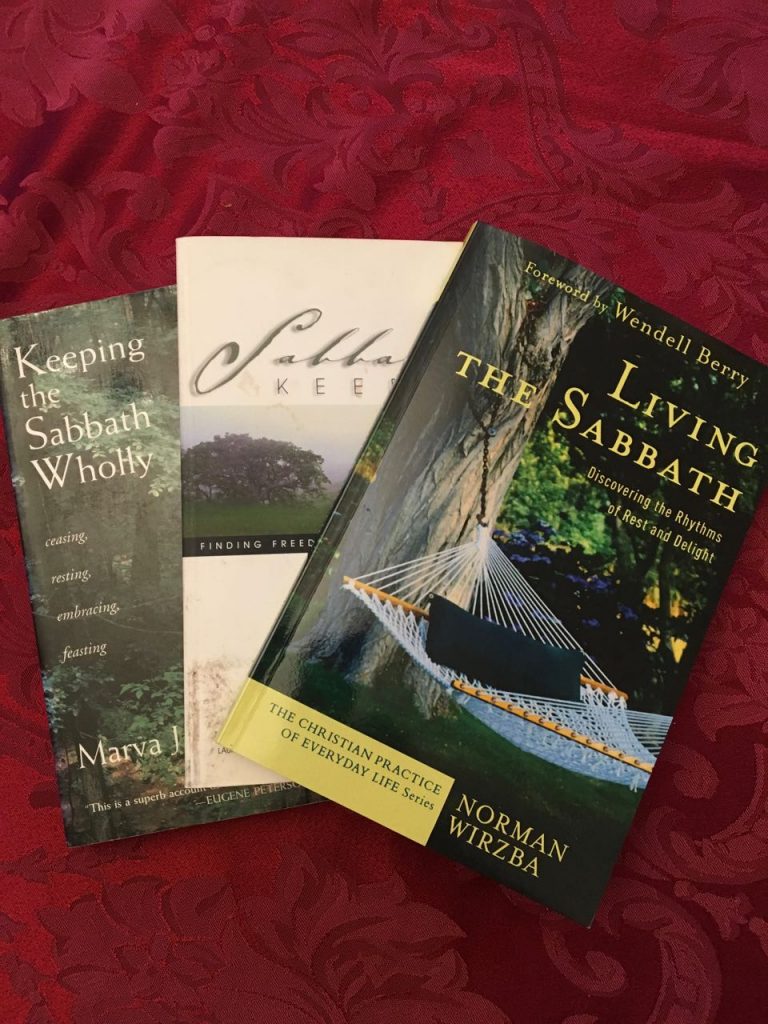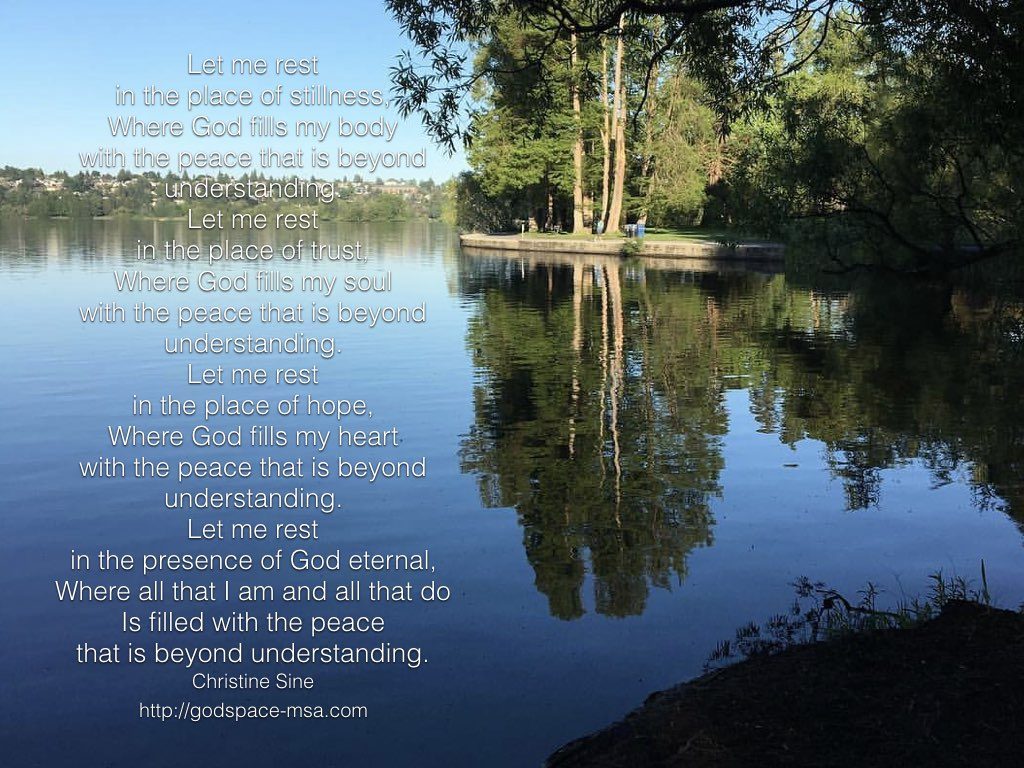Today is Trinity Sunday, Post by Rachel K. Taber-Hamilton
Every society and culture that has arisen on the earth appears to have developed a concept of power(s), supreme being(s) or wise teacher(s) that provide/s instruction or guidance on how to live. Within the study of cultural anthropology, there has been a long history of academic dialog regarding the role of spiritual or religious belief within society.
In early human societies, belief as a method of transcending self can be considered a highly adaptive and successful strategy for coping with dangers in the environment and engaging in risky or innovative behaviors that may yield a high reward or benefit for the self and/or the family/community. From the historical perspective of the study of spiritual/religious belief systems, the ability for a community to survive within the competition for land and resources, for achieving freedoms and new opportunities, has always come down to what a given culture believes and is prepared to do because of those beliefs.
I believe that we are observing (again) in our current time, that no matter what demonstrable knowledge we may have of the world, it is what people believe about that knowledge that makes the difference between either assuring human survival or assuring our demise. Subsequently, belief itself could be said to be the summation of an ultimate power.
One example of how belief (in supernal beings or wisdom figures) dovetails with knowledge of the natural environment as a successful survival mechanism is the domestication and cultivation of the crops of squash, beans and maize (corn) among the Iroquois peoples. In a technique known as “companion planting,” the three crops are planted close together. Flat-topped mounds of soil are built for each cluster of crops. In parts of the Atlantic Northeast, rotten fish or eels are buried in the mound with the maize seeds, to act as additional fertilizer where the soil is poor. When the maize is around 6 inches tall, beans and squash are planted around it, alternating between the two kinds of seeds.
The three crops benefit from each other. The maize provides a structure for the beans to climb, eliminating the need for poles. The beans provide the nitrogen to the soil that the other plants use, and the squash spreads along the ground, blocking the sunlight, helping prevent the establishment of weeds. The squash leaves also act as biome of living mulch that helps retain moisture in the soil, while the prickly hairs of the vine are a natural deterrent to bugs.
![]() Anthropologists theorize that the process to develop this agricultural knowledge took place over 5,000–6,500 years. Knowledge of how to grow “The Three Sisters,” as they are called among many North American indigenous cultures, has been passed down from generation to generation through oral tradition. Variations of the theme exist between Native cultures, adapted to specific environments, resulting in a diversity of “Three Sister Gardens.”
Anthropologists theorize that the process to develop this agricultural knowledge took place over 5,000–6,500 years. Knowledge of how to grow “The Three Sisters,” as they are called among many North American indigenous cultures, has been passed down from generation to generation through oral tradition. Variations of the theme exist between Native cultures, adapted to specific environments, resulting in a diversity of “Three Sister Gardens.”
For many Native peoples, the meaning of the Three Sisters runs deep into the physical and spiritual well-being of their people. Known as the “sustainers of life,” the Iroquois consider corn, beans and squash to be special gifts from the Creator. The well-being of each crop is believed to be protected by one of the Three Sister Spirits. Corn, beans, and squash contain complex carbohydrates, essential fatty acids and all eight essential amino acids, allowing most Native American tribes to thrive on a plant-based diet. In this instance, knowledge and belief support one another and collaborate to assure the survival of several types of plant species as well as supporting several types of human communities. The interdependence of knowledge and belief becomes cultural wisdom, while the interdependence of several species supports the wellbeing of each.
Within the stories associated with the Judeo-Christian belief system, three interdependent beings emerge in the form of God the Father, God the Son and God the Holy Spirit. Though there are variations of the specific nature of the relationship between these three beings within the variants of Christian belief, the common theme is that the Trinity is a divine expression of a unified way of being. The three beings support one another, care for one another and ultimately seem to be mutually dedicated to sustaining and nurturing people specifically and life in general.
The adaptive survival mechanism to human communities through maintaining a Trinitarian belief system may not be as readily tangible or apparent as food production. However, when one applies the importance of the belief in the incarnation of God in Christ, Jesus becomes the model for how his followers are to incarnate the Holy Spirit as an indwelling reality. Through the spiritual ritual of Baptism, the believer is motivated (called) to actively engage in several practices that can effectively improve the survivability of several species simultaneously.
Trinitarian spiritual life practices include (but are not limited to): service to others, dedication to social justice, commitment to the alleviation of poverty and hunger, sustainable stewardship of Creation, healing of communities and reconciliation between peoples, laboring for peace, and teaching about the life-giving power of love. These actions are understood to demonstrate the believer’s love of Christ, having an ultimate affect that changes the socio-cultural world and improving the chances of survival of life – in all its diverse expression as the singular entity known as Earth.
Truly, as the stories of many faiths and cultures teach us, the archetypal form of the Trinity within belief systems speaks to a deep and shared wisdom – an intuition that seems passed on in the human genome – that all of life is connected, interdependent, mutually resilient, collaboratively co-creating, capable of tremendous life-sustaining nurture and equally threatened in survival without this awareness.
The ultimate power of belief in the Trinity is that it has the potential – if fully lived among human communities who practice its tenets – to save the world, not from some mythic end of divine retribution but from an all too real consequence of humans not believing in the interdependence of all life. The human species has an immanent survival need to create sustainable communities based in a mutual commitment to sharing resources, cultivating multiple species upon which we depend and which in turn depend on our species for their survival through responsible care of creation – appreciating the knowledge we have (in fact) of the impact of our species on the Earth.
Knowledge and belief are lovers in the aware mind, and we are called to incarnate the compassion by which that union compels us to act. Knowledge, belief and compassionate action compose a trinity of consciousness unique to human kind, an incarnate trinity that can transform the world as we know it into the creation that all of life now depends upon us to realize.
In the name of the Creator, the Redeemer and the Sustainer – Amen.

Jesus used the things he saw in his everyday life to teach his followers about God and about living life in the way of God’s kingdom.
Jesus invited them to consider the lilies, soils and seeds, sheep, shepherds, water and fish…all things Jesus found along the way and all things his listeners would be familiar with and understand.
Sometimes we forget that Jesus and his followers were not just sitting in a room or in the synagogue. Instead, they were walking from town to town. They were beside the water, spending lots of time outside in nature letting creation declare God’s glory and tell more of God’s story.
Sometimes we need encouragement to get outside and let creation speak to us too!
One of our practices is taking Parable Walks. Allowing creation to declare the glory of God and letting things we notice and experience outside, teach us more about Jesus. You can do a parable walk on your own, with friends and family or with a small group or your entire community. You’d just need to allow for sharing within in multiple small groups if you are leading this with many people. We used to take our group to a local park on a Sunday morning and do a breakfast picnic with coffee and bagels from a local shop.. In a perfect world you’d be somewhere peaceful, with a vista or in a place of beauty, but you can just host a parable walk in your back yard or your neighborhood.
So invite some friends over and host a parable walk, or just get yourself outside this week and take a parable walk on your own!
Allow Jesus to speak to you through the song of a bird, the wind in the trees, even the sound of traffic or the laughter of children. Consider clouds, a leaf, the flowers or twigs along your path. Pay attention, breathe, take time to notice, take time to listen and be present. God can even speak to you through the trash along the path. Who has thrown trash on your path this week? or have you thrown trash on someone else’s path? Talk to God about this. One day God spoke to me though the construction happening around my neighborhood. Jesus reminded me that he was at work building new things in my life and that I needed to notice this and be ok with all the mess. On parable walk at a park, I found a tree near an old wire fence. The tree’s bark had actually grown over the barbed wire as the tree grew. God used this to remind me that I too can grow through pain and the hard stuff going on in my life at the time.
When we do parable walks in community with a group, we gather together and pray and opening prayer, and then listen to a psalm or gospel passage together and allow the Holy Spirit to highlight words, phrases and images that we can carry with us as we walk and spend time outside. Psalm 8 is in the lectionary for this week so I’ve used that as the example in this parable walk outline. We invite people to bring their journals if they want to and we have some art supplies that they can use too. We start out together and then separate for the parable walk and have 45 minutes to be with God in nature. You can always go longer if you want to or start with 30 minutes as you learn the process. Then get back together to process and share the experience and close with a song, silence or repeating the opening prayer.
Parable walks are a practice. So it takes a little practice. Don’t feel like it has to go perfectly the first time. But as you begin parable walking more regularly, you will start to notice how God is speaking through just about everything if we take the time to notice!
PARABLE WALK :
OPENING PRAYER (pray out loud together)
Lord, I know not what to ask of You.
You alone know what my true needs are.
You love me more than I myself know how to love.
Help me to see my real needs, which may be hidden from me.
I dare not ask for either a cross or a consolation.
I can only wait upon You; my heart is open to You.
Visit and help me in Your steadfast love.
Strike me and heal me; cast me down and raise me up.
I worship in silence Your holy will.
I offer myself to You as a living sacrifice.
I put all my trust in You.
I have no other desire than to fulfill Your will.
Teach me to pray. Pray Yourself in me. Amen. (A Prayer of Metropolitan Philaret of Moscow)
LECTIO DIVINA (DIVINE LISTENING)
The passage will be read 3 times by three voices, listen and allow the Holy Spirit to speak to you from the passage. What words or phrases pop out to you? What images or pictures stick out? How is the Holy Spirit asking you to respond to this word or phrase or to this entire passage?
PSALM 8
Lord, our Lord,
how majestic is your name in all the earth!
You have set your glory
in the heavens.
2 Through the praise of children and infants
you have established a stronghold against your enemies,
to silence the foe and the avenger.
3 When I consider your heavens,
the work of your fingers,
the moon and the stars,
which you have set in place,
4 what is mankind that you are mindful of them,
human beings that you care for them?
5 You have made them a little lower than the angels
and crowned them with glory and honor.
6 You made them rulers over the works of your hands;
you put everything under their feet:
7 all flocks and herds,
and the animals of the wild,
8 the birds in the sky,
and the fish in the sea,
all that swim the paths of the seas.
9 Lord, our Lord,
how majestic is your name in all the earth!
New International Version (NIV)
Holy Bible, New International Version®,
NIV® Copyright ©1973, 1978, 1984, 2011 by Biblica, Inc.®
WALK:
Silently walk in God’s Creation, or, you may prefer to sit somewhere where you have an expansive view of creation.
Keeping in mind God’s invitation to you in our scripture reading, invite the Holy
Spirit to speak to you through what you see, hear, smell, experience outside.
Watch for symbols or things in nature that remind you of God.
Look for something that symbolizes a characteristic of God that you have a
hunger to know and experience. For example, God’s faithfulness, protection, love, etc.
You might choose something that symbolizes a
characteristic of God which you have experienced today or in this season of
your life.
Watch for something that pops with meaning and metaphor.
It might be a bird, a tree, a stone, the clouds, the dirt.
The Holy Spirit can speak to you through anything.
Watch for symbols of what Jesus is doing in your life.
Or what He longs to do in your life.
Spend time reflecting on how God is speaking to you through the view, the passage, or symbol.
Consider writing in your journal about what God showed you. Describe how Jesus revealed Himself to you today through creation, through the passage, etc.
At the designated time please gather with the group back with the group.
CLOSING:
When you gather back together, take a few minutes to process the experience. What did you see or hear? Any questions or problems? Was this experience hard to get into or was it refreshing? What did you experience? What and how did God speak to you?
Allow people to share only if they want to. Always give people permission not to share. If the group members don’t know each other well or if you have a larger group you might break down into pairs or threes for the sharing part.
You can end your time together in silence, or singing the doxology or praying the opening prayer again together. Invite everyone to try this practice again on their own and allow God to surprise them through the beauty of creation and the ordinary things along the way.
By Brenda Warren —
COLUMBA OF IONA
December 7, 521AD-June 9, 598AD
St. Columba (Colum Cille meaning “dove of the church”) was an Irish monk, abbot, scholar, and missionary who spread the gospel of Jesus Christ in Scotland, England, and throughout Western Europe from his monastery that he established at Iona off the western coast of Scotland. His monastery became known as the “Cradle of Western European Christianity.” This scholarly and deeply spiritual Abbey sent out hundreds of monk evangelists who shared the gospel and set up monasteries all over England and Western Europe. Columba is one of the most loved of the early Celtic saints, even though he often is considered as a “warrior saint.”
His life was recorded by Adomnan, the ninth abbot of Iona who wrote the Life of St. Columba a century after Columba died. Much of Adomnan’s work was based upon an earlier biography recorded by the seventh abbot of Iona, Cummene “the White.”
Columba grew up in Garten in County Donegal in Ulster. He was a descendant of one of the most powerful royal dynasties of Ireland, the Ui Neill clan of Northern Ireland that descended from the famous Niall of the Nine Hostages. His mother was descended from a king of Leinster. Columba studied under the famous monastic teachers, Finnian of Moville and Finnian of Clonard. As a young man in his mid-to- late twenties, he was ordained as a deacon at Moville Abbey and was later ordained as a priest when he was about thirty years old. By 563AD, Columba had already established several monasteries in Ireland.
It is said that Columba evangelized the local Druids in a similar way that other Celtic saints were famous for by not requiring the local pagans to destroy their old way of worshipping. Instead, the Celtic evangelists gently began the process of transforming the pagan way of worship to become Christ-centered. So, Columba began sharing the Gospel of Jesus the Christ to the Druids by declaring that “Christ is my Druid.”
Legend says that after copying a book of Psalms without permission that belonged to his former teacher, St. Finnian of Moville Abbey, that Finnian demanded the copy, but Columba refused to hand it over. Their dispute was taken to the High King Diarmuid, who ruled “to each cow its calf and to every book its copy” convicting Columba of plagiarism and giving legal copyright to Finnian. This is considered to be the first recorded instance of copyright law.

Stained glass in the Abbey of Iona
Columba persuaded his kinsmen to go to battle over this copyright ruling and King Diarmuid was defeated. Columba was blamed for the death of hundreds of men that were killed at this battle. For penance, it was decided by a synod that Columba must convert an equal number of pagans. So Columba and twelve companions chose to embrace peregrinatio, to pilgrimage for the love of God. In this instance, his pereginatio led him to travel into exile as his penance.
Columba likely sailed with those twelve companions in a typical Celtic coracle of leather and rattan. With no oars, they trusted the Spirit to blow them to wherever the Lord desired Columba to live out his penance. It is quite appropriate that the crowded coracle landed on the isle of Iona on the day of Pentecost, where Columba began a new of ministry by creating one of the greatest centers of faith and evangelism in Christian history. It is said that when they arrived on the little isle of Iona, near the isle of Mull in the Inner Hebrides off the western coast of Scotland, that Columba climbed to the highest hill on Iona. He must have been in good physical shape to climb that hill, as it is not an easy climb, especially after a long ride in a coracle! When he realized that he could not see his homeland of Ireland from that high hill, he knew this was where he had been sent by the Spirit to be his place of penance and resurrection.
Columba was a not only an abbot, but also a scholar, poet, evangelist, and visionary. Three surviving early medieval poems are ascribed to him. He spent much of the last years of his life copying manuscripts by hand in the scriptorium at Iona. It is thought that he personally copied 300 manuscripts. Some early medieval manuscript scholars claim that the magnificent Book of Kells was hand-copied and gorgeously illuminated about 800AD at the scriptorium at Iona. It is believed by some that Columba also evangelized the Picts in northern Scotland.
Columba lived on Iona for about 36 years and died on June 9, 598 at age 76 while copying Psalm 44. A favorite, yet poignant story relates that the aged Columba was out walking one afternoon and he grew weary. As he sat down by the roadside to rest, his beloved white horse who carried milk for the monastery came to him and laid his head upon the saint’s chest and tears flowed from the horse’s eyes as he bade farewell to the master he knew was dying.
Today, pilgrims journey from all over the world to Iona, this “Thin Place,” where the veil between earth and heaven seems almost gossamer. The Iona Community, an ecumenical inclusive community based on peace and justice founded by Rev. George McLeod in the late 1930’s continues to draw people of all ages and from all cultures to stay, work, and worship on Iona.
Let us pray: Christ my Druid, I open my heart to you. May You be born again anew in my life. Shine Your healing light upon those broken, messed up places in my life, just as You did for Columba. Re-mold and remake me. Thank You for second and third and fourth chances. May the dove of peace fill my life and the lives of all creation.
“And now,
may kindly Columba guide you
to be an island in the sea,
a hill on a shore,
a star in the night,
a staff for the weak.”
Amen and amen.
-Gaelic oral tradition
I’ve been writing about what I’ve learned from counseling in the past year. My counselor suggested separating thoughts from feelings, which I described in the first post. In the second post and third post of this series, I described how I deal with feelings. In this post, I’ll talk about thoughts.
I observe two major categories of thoughts that don’t help me in any way:
- Catastrophic thoughts about the future. “What if this happens?” “What if that happens?”
- Judgmental thoughts about myself. “What’s wrong with me that I don’t I trust God more?” “What kind of a person would eat cookies for comfort instead of coping with her emotions in a more healthy way?”
My counselor called these kinds of thoughts “demonic,” and for me that’s accurate. The thoughts predict a future that might or might not happen, a future I have no control over. The thoughts express judgment for myself and show no compassion.
The thoughts mask feelings. I find that if I go through the RAIN process that I described in the previous two blog posts (here and here), it takes some effort to figure out what feelings lie behind the thoughts. Once I identify the feelings and walk through the four steps of RAIN, some of the demonic thoughts simply go away. They were functioning as cover-ups for painful feelings. They were enabling me to avoid feeling those feelings, an avoidance technique that was just as bad, or even worse, than the thing I was avoiding.
When the RAIN process simply dissolves the thoughts, it feels like a miracle. However, sometimes the thoughts remain or come right back after I do RAIN. Sometimes I there are more feelings lying behind the thoughts, and a second round of RAIN, focused on different feelings, helps. But sometimes every then, the counterproductive thoughts remain.
In that case, I have a number of strategies:
- Name the choice out loud.
“Do you want to keep thinking these thoughts or do you want to trust God with the future? I want to trust God with the future.”
“Do you want to continue to judge yourself, or do you want to have the kind of compassion on yourself that God has for you? I want to have compassion on myself because God has compassion for me.”
- Pray the serenity prayer. I do it using my breath, three or four breaths for each line.
God, grant me the serenity to accept the things I cannot change,
the courage to change the things I can,
and the wisdom to know the difference.
Sometimes I add another line, “Grant me the serenity to leave in the future the things that belong in the future.”
- Pray the Jesus prayer with variations. Again, I use my breath, one breath for each phrase.
Lord Jesus Christ, Son of God,
have mercy on me, a sinner.
Lord Jesus Christ, Prince of Peace,
have mercy on me, grant me your peace.
Lord Jesus Christ, Light of the World, Bright Morning Star,
Light to my path, Lamp to my feet,
have mercy on me, guide my steps.
- Imagine myself handing my thoughts to Jesus. I picture myself standing with Jesus beside a beautiful river, the river of God’s love. I hand my thoughts to Jesus and he throws them in the river, where they disappear into the hugeness of God’s love.
- Pray a scripture. I find Psalm 139 and Ephesians 3:14-19 to be helpful.
This process I’ve been describing – separating thoughts from feelings, feeling the feelings in a spirit of self-compassion, then dealing with any remaining thoughts by using a variety of spiritual practices – is helping me cope with stress so much better. This is a gift of healing that comes from God, parallel to the miraculous healings in the Gospels.
The purpose of this gift is so that I can trust, honor, love and serve God more fully. It’s a further step of my life belonging to the Triune God.

Last week I put together a list of my favourite books on Sabbath and then asked my friends on Facebook what they would recommend. Here is the final list we came up with:
Baab, Lynne: Sabbath Keeping: Finding Freedom In the Rhythms of Rest
Berry, Wendell: This Day: Collected and New Sabbath Poems
Brueggemann, Walter: The Sabbath As Resistance: Saying No To The Culture of Now
Buchanan, Mark: The Rest of God: Restoring Your Soul By Restoring Sabbath
Dawn, Marva: Keeping the Sabbath Wholly: Ceasing, Resting, Embracing, Feasting
Heschel, Abraham: The Sabbath
Lieberman, Joe: The Gift of Rest: Rediscovering the Beauty of the Sabbath
Mueller, Wayne: Sabbath: Finding Rest, Renewal and Delight in Our Busy Lives
Winner, Lauren: Mudhouse Sabbath: An Invitation to a Life of Spiritual Discipline
Wirzba, Norman: Living the Sabbath: Discovering the Rhythms of Rest and Delight
What else would you recommend?
By An Anonymous Writer —

I was an elder’s wife.
But before that…well let’s go back in time nearly two decades. I went to ministry school overseas. One of the last sermon series from my home church before I left was on what women can and cannot do in the church. But at ministry school, I learned that the Apostle Paul was speaking into a very certain historical context, culture and to specific church groups – he was not meaning to write a ten commandments for the role of women in the church from then onwards.
It was a very releasing time for me at ministry school on the whole, where I was given many opportunities to grow and try new things. Then I returned to my home country and fast forward some years, got married, had our daughters and found ourselves in a church where eventually my husband came onto the eldership team.
I have grown up in church and observed many ways Christians believe about theology, the Bible and church. These beliefs can bring people together, but they can also alienate and cause a lot of hurt. Being very certain that you have the right way of believing doesn’t allow room for open discussion or change.
Having daughters ourselves, we want them to grow up knowing the sky’s the limit, that there is nothing they cannot do, that they are created powerful, beautiful, gifted, individually unique and equal in the sight of God, neither Jew nor Greek, male nor female.
But what are the belief systems in the church teaching us as women? What are they teaching our daughters?
I have seen differing beliefs about gender roles in the church. Many of these may be unconscious, inherited through the traditions of church and culture yet they are nonetheless deeply held beliefs. Many have also been discussed, studied, researched in depth – beliefs about gender and church leadership, submission, teaching, preaching and so forth.
As many other women around the world have experienced, I too have heard, But the Bible says…
There are some wonderfully liberating books out there which speak into the issue of the role of women in the church, challenging the status quo. I discovered however, that it doesn’t matter how many articles or books you read on the topic, if your presiding church leadership (including the broader context of denomination or affiliation) does not feel the same way regarding these interpretations of the Bible, you can find yourself in an even deeper place of stifling frustration.
It took a time of being stripped and eventually leaving the church we were in to realise that the walls of restriction I felt had to come down first in the most important place – being my mind.
I had been released and given opportunities; all seemed to be going in the area of my dreams…to be in “ministry”! But I discovered that being a disappointment to others can leave you reeling from the place you thought you were headed.
You can land up with labels, being put into boxes of other people’s making and once that happens, I experienced that there is very little that can be done to “go back to the way things were”.
In hindsight, I am very thankful for what we went through. I have seen ladder climbing in the church, projection, power struggles and spiritual ambition. Striving combined with good intentions. And I have seen all of these, in me.
No one can control you without your permission. No one can restrict you when you are already free. Free to know who are as an abundant created being. A freedom to relate with people on an equal footing from a heart of humility and humanity, not from a place of labels, projection and position.
As an elder’s wife, I had many questions with no solid answers. And all I strove to achieve, a place of equality, release in the call of God on my life, I discovered would never have truly satisfied. Would never be what I thought I wanted.
The church, what is it really? Is it a place, a building? Ministry, what is it really? Is it an outreach or church plant? Is it preaching from the pulpit?
When we finally left, a change in perspective grew that has made all the difference. What value do we place on the calling God has for us, outside of the four walls? Following Jesus into the dusty streets of whatever Jesus calls us to, the mountain tops, beaches, gardens, people, homes and yes, synagogues.
I have made my fair share of mistakes and I have felt broken. I had to leave to discover being a child is enough. A child who does not need to prove their place in the family whether female or male. I do not need to fix everything. I am a Daughter of God, of inestimable value. With no ladders to climb to impress God, with nothing to offer to redeem myself. I am finding myself at the cross where labels and masks are stripped away. Where I don’t have to be perfect to fit in. Where no one expects me to be perfect. I can be myself. I can breathe again.
I love the church. But it’s more than that. I love the amazing variety of people on this earth where we live for now. Jesus was not status quo – he always offered a new way.
It is the simple things that matter – love, loving God, loving ourselves, loving others.
I don’t have to live up to other’s expectations.
I don’t have to attend to please or do to be pleasing.
When I know myself as loved, all else will flow.
Including a deepened appreciation of all that happens outside of the four walls of a church congregation.
I have learned to cease striving against the goal. When you realise your value and go where the energy is welcoming, loving, spacious – you start to flow naturally in your gifting and talents. We cannot fill the void by proving a point through cycles of action and reaction – we will find our skin when we embrace the places that are inviting and open. Destiny calls and makes a way for our unique flavour. There is no one else who can offer what you offer. There is no one else who can do what you do in the way you do it.
Yes, I have a heart for all people to be mobilised in and grow and flourish in their gifting, to come into healing no matter what gender they may be. But I have chosen to relinquish the striving. I am in the process of learning to rest in a different sense of belonging. A belonging that is peace, and not dependent on the fulfillment of future dreams.
The walls come down in our minds first.
And then we come to know, we are actually free.
We are loved.

by Christine Sine
Last week was a very unrestful week for many of us. The bombing in Manchester, the massacre of Coptic Christians in Egypt, more deaths in Kabul, the Philippines and now on London Bridge, growing turmoil around the world and the U.S. pulling out of the Paris climate agreement weigh heavily on us. The world seems to be unravelling and we are afraid that God has lost control.
In the midst of such challenges how do we find not just the energy to respond but also the peace that our hearts need to journey onwards? One thing I realize is that rest doesn’t just happen. It must be created. Restful moments throughout the day that restore our equilibrium and flood our heart with the peace that is beyond understanding are a deliberate choice.
About six months ago I purchased a fitbit. Part of what I love about it is its reminder to get up and walk every hour. Initially I just wandered mindlessly around the house, intent on getting my 250 steps but little else. Then I realized that these 2-3 minute stretch breaks could also become deliberate restful moments when I paused to breathe in and inhale the peace of God.
It has revolutionized my day. Sometimes, like this morning, I wander out into the garden and inhale the fragrance of the roses. In unstable times like this, my peace rose in particular reminds me that the fragrance of God’s peace is always with us. Even the rose’s history, inspires me. Developed in France during World War II, it was smuggled out by the French resistance. The naming of the rose as ‘PEACE’ was publicly announced in America by Robert Pyle on April 29, 1945 , the day Berlin fell, officially considered the end of World WarII in Europe. The next showing of the Peace rose came on V-E Day, May 8, 1945. At the very first United Nations Conference in San Francisco, a Peace rose with the message: “We hope the ‘Peace’ rose will influence men’s thoughts for everlasting world peace”, was presented to all 49 U.N. delegates.

Peace rose
These “coincidences” make me feel that God is always at work behind the war and turmoil creating peace. Sometimes it is hidden and needs to be smuggled out as it were to make sure that it is planted in an environment where it can grow and flourish until the time comes when it can be named, applauded and shared so that it can indeed go out throughout the world and bring hope.
So go and plant a Peace rose, or better still plant some peace in God’s garden. God desires peace in our world and I think that the history of this rose shows that.
What Is Your Response?
I enjoyed watching this video today. It made me smile and helped me relax. It is a glimpse of hope for peace and allowed God’s peace to well up within me.
Sit quietly after you have watched it and take some deep breaths in and out. Sit in the peace of God’s presence and think back over the last couple of days. Where have you seen glimpses of God’s peace? What do you need to do to nurture and grow these? Where do you have the opportunity to share these glimpses and allow their fragrance to spread throughout the earth?
As an Amazon Associate, I receive a small amount for purchases made through appropriate links.
Thank you for supporting Godspace in this way.
When referencing or quoting Godspace Light, please be sure to include the Author (Christine Sine unless otherwise noted), the Title of the article or resource, the Source link where appropriate, and ©Godspacelight.com. Thank you!
